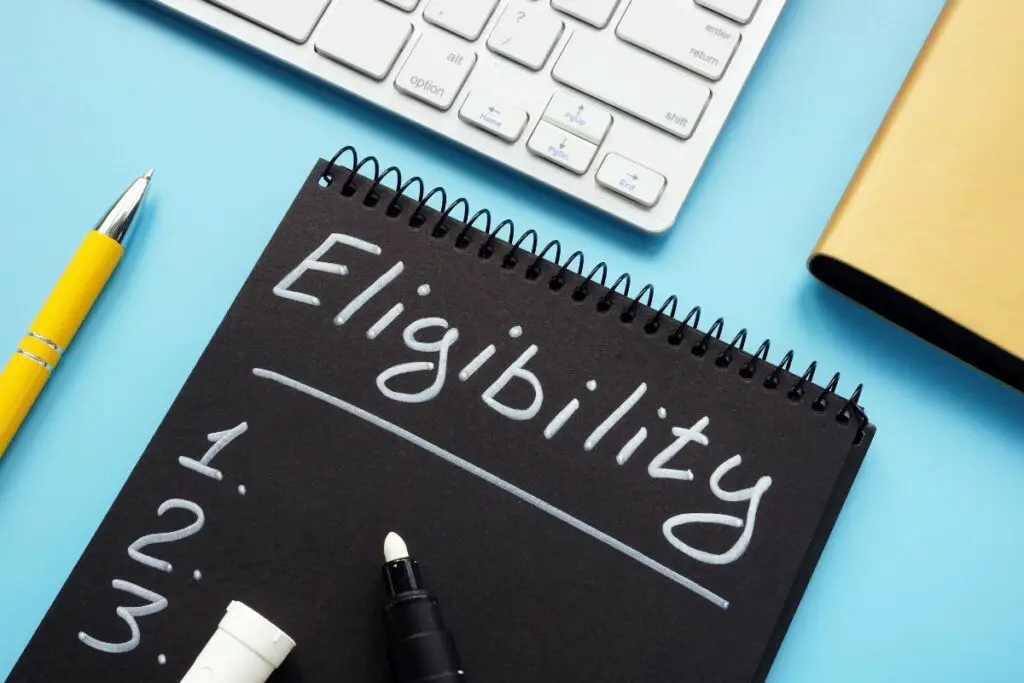If you want to work in an English-speaking country, OET might be your test! OET is an English language test specifically designed for healthcare professionals and workers in other occupations.
The eligibility criteria and score requirement of OET depend on the profession and country. Different professions and countries might have different OET score conditions.

In this blog post, I have mentioned the eligibility criteria for applying for OET, the score requirement for each profession, and the listening, Reading, Speaking, and writing standards.
The Eligibility Criteria For OET
To be eligible to take OET, you must:
Be a healthcare professional or work in another occupation
OET is designed for healthcare professionals and workers who use English daily. OET is recognized by several major healthcare regulatory authorities, hospitals, and organizations.
OET has four sub-tests: Speaking, Writing, Reading, and Listening. OET is administered as a computer-based test (CBT) at OET centres worldwide. OET is not available as a paper-based test (PBT).
OET is widely acknowledged as a secure, valid, and reliable English proficiency test that meets the needs of the healthcare sector. It is available to anyone who wants to register for the test, regardless of nationality or country of origin.
Work or intend to work in an English-speaking country
OET, or the Occupational English Test, is an English proficiency test designed for healthcare professionals. Employers and registration bodies widely accept the OET in Australia, New Zealand, the UK, Ireland, and Singapore.
These councils include the Australian Medical Council, the British Medical Council, and the Canadian Medical Association.
To be qualified to take the OET, you must work or intend to work in an English-speaking country in a healthcare-related field. If you do not meet this criterion, you will not be able to register for this exam.
For more information on the OET and the eligibility standard for taking the test, please visit the OET website.
Have the required level of English proficiency for your profession.
To be capable of taking the OET, you must have the required level of English proficiency for your domain. OET is offered in four versions: Medicine, Dentistry, Pharmacy, and Nursing. Each version is specifically designed to assess the language skills of healthcare specialists who need to use English in their work.
12 Healthcare Professions Of OET & Their Score Requirement
OET has been developed specifically for 12 healthcare professions:
1. Dentistry
The OET is an important examination for dental professionals. It is a requirement for anyone who wants to work in the dental field. This test requires a score of at least 70% to be qualified for the dental certificate after examination and a permit in all five elements of the OET.
The OET is a series of examinations administered in different languages: To be eligible for the oral exam, one must have passed two years of undergraduate education. To qualify for the specialist exam, one must have passed four years of undergraduate education.
There are two specialist examinations:
- Oral medicine
- Oral surgery.
The dental certificate, associated with a consultant examination, enables dentists to practice in that field but not in other fields. This award is a prerequisite for entry into some residency programs.
Check out the OET score calculator and the grading system.
2. Dietetics
The occupational English test score requirement for dietetics is:
- An overall band score of 6.5 or higher on the OET, with no individual band score less than 6.0
- A minimum of 7.0 in each band (listening, speaking, reading, and writing)
- A minimum score of 7.0 in each band for candidates who can read and write in Chinese or Spanish.
According to the Occupational English Test website, the total score for dietetics is 6.5, with no individual band score less than 6.0. There are also three bands: listening, speaking, and reading, with a minimum of 7.
3. Medicine
The OET exam is required for all international medical graduates who want to work in English-speaking countries.
The OET assesses whether you have the necessary level of English to understand complex instructions and communicate effectively with colleagues, patients, and other professionals.
You need to score at least a B grade on the OET before you can apply for registration with the General Medical Council (GMC).
4. Nursing
The OET for Nursing is an English language test created to determine the English proficiency required for nurses to communicate with patients and other healthcare professionals.
The OET score condition is set at a degree that ensures that those applying for nursing courses have sufficient knowledge of the English language to carry out their duties effectively.
5. Occupational Therapy
The OET is designed for people who want to work in occupations such as occupational therapists, physiotherapists, speech therapists, and audiologists.
To be eligible for the Occupational Therapy profession, you must have an OET score of at least 7.5 with no subtest below 7.0.
6. Optometry
This test is required for all international students who want to enter the field of optometry. The OET score requirement is not set by any institution but by the individual colleges and universities.
It assesses the English competency of international students who want to enter the field of optometry. This test is required for all international students who want to enter this field, but any institution doesn’t set it – it’s set at each college or university individually.
7. Pharmacy
The OET for Pharmacy is set and administered by the British Council. It assesses the English language aptitudes of people working in a pharmacy or considering a career in pharmacy.
The OET score requirement for Pharmacy is not fixed and differs from country to country.
8. Physiotherapy
The OET score requirement for physiotherapy depends on the country and institution. For instance, the minimum OET score requirement for physiotherapy in Australia is 6.5. In India, it is 7 or 8 on a 10-point scale.
9. Podiatry
The OET score requirement for Podiatry is not clear. Some sources say that it’s 400 and others say it’s 600.
However, the score requirement for Podiatry is unclear because it varies from country to country, company to company, and even industry to industry.
10. Radiography
The OET score standard for Radiography is a minimum of 4.5 out of 6 in each section. You will need to get a Band 6 in the following sections: Reading, Listening, Writing, and Speaking.
11. Speech Pathology
The OET for Speech Pathology consists of two written and oral components. Both portions are subdivided into more categories.
The OET score is the minimum requirement for a speech pathology course. It is important to note that not all universities offer the same course and the individual university’s minimum requirements are up to the individual university.
12. Veterinary Science
The OET for Veterinary Science test will assess your English language skills to help you work in the veterinary industry.
The lowest score requirement for Veterinary Science is 70%. That means a minimum score of 7 on this test is required to work in this field.
Score Requirement For OET
The OET score requirements vary depending on your profession. For example, if you are a nurse, you must score at least B in all four sub-tests.
However, if you are a pharmacist, you only need to score at least C+ in Listening and Reading. You can find the full list of OET score requirements here .
.
Sub-Tests for OET
As I have discussed earlier, the OET comprises four subtests: Listening, Reading, Speaking, and Writing. The Speaking and Writing sub-tests are profession-specific, while the Listening and Reading parts are common for all professions.
The Speaking and Writing sub-tests are profession-specific. This means that the tasks in these sub-tests are related to your specific profession. For example, if you are a nurse, you must complete tasks such as giving patient advice and writing referral letters.
Frequently Asked Questions
Here are some of the frequently asked questions about the Occupational English Test:
What are the OET sub-tests?
There are four OET sub-tests. These four sub-tests are mentioned below.
- Listening
- Reading
- Speaking
- Writing
What is the OET score requirement for my profession?
Different professions have different score requirements for each OET sub-test. You can check the OET score requirement of any profession by visiting the OET official website.
How can I prepare for the OET sub-tests?
The preparation for each subtest is different. That’s why you have to look at the materials from a 360-degree angle. Courses, mock tests, and guidebooks are ideal for preparation.
What type of audio materials will be included in the Listening sub-test?
Different types of audio content could be included in the listening sub-test of OET. So, you should prepare yourself for any type of listening material.
What is the format of the OET Reading sub-test?
The OET Reading subtest consists of three parts. There will be a total of 42 question items in all of these three parts. The OET reading sub-test must be completed within 60 minutes.
Do you still have some questions in your mind? Don’t hesitate and ask them in the comment section. I would love to assist you!
Conclusion
I hope this blog post has helped provide you with some basic information about OET. I have discussed the eligibility criteria and score requirements of OET for different professions.
